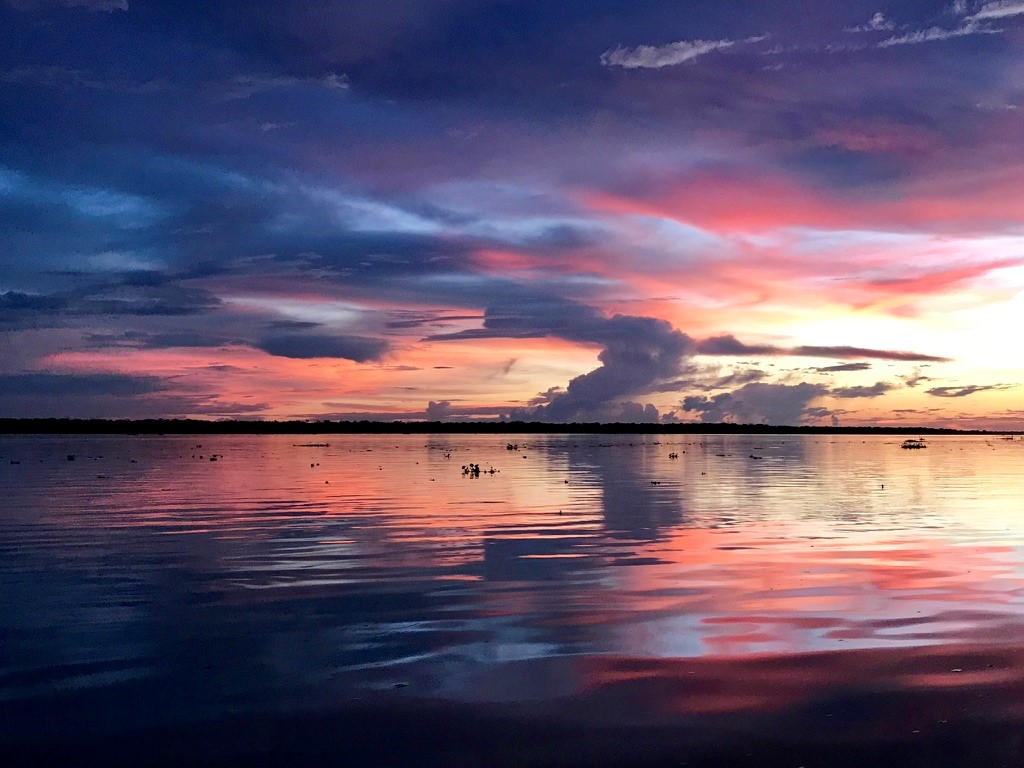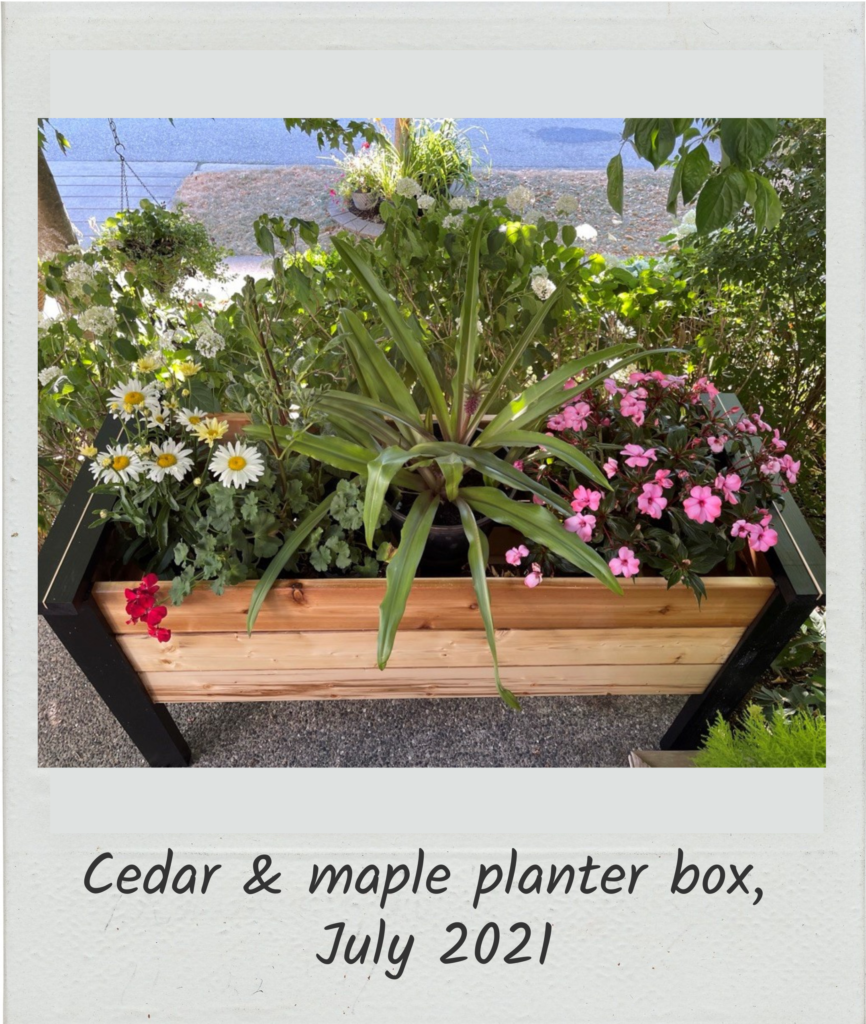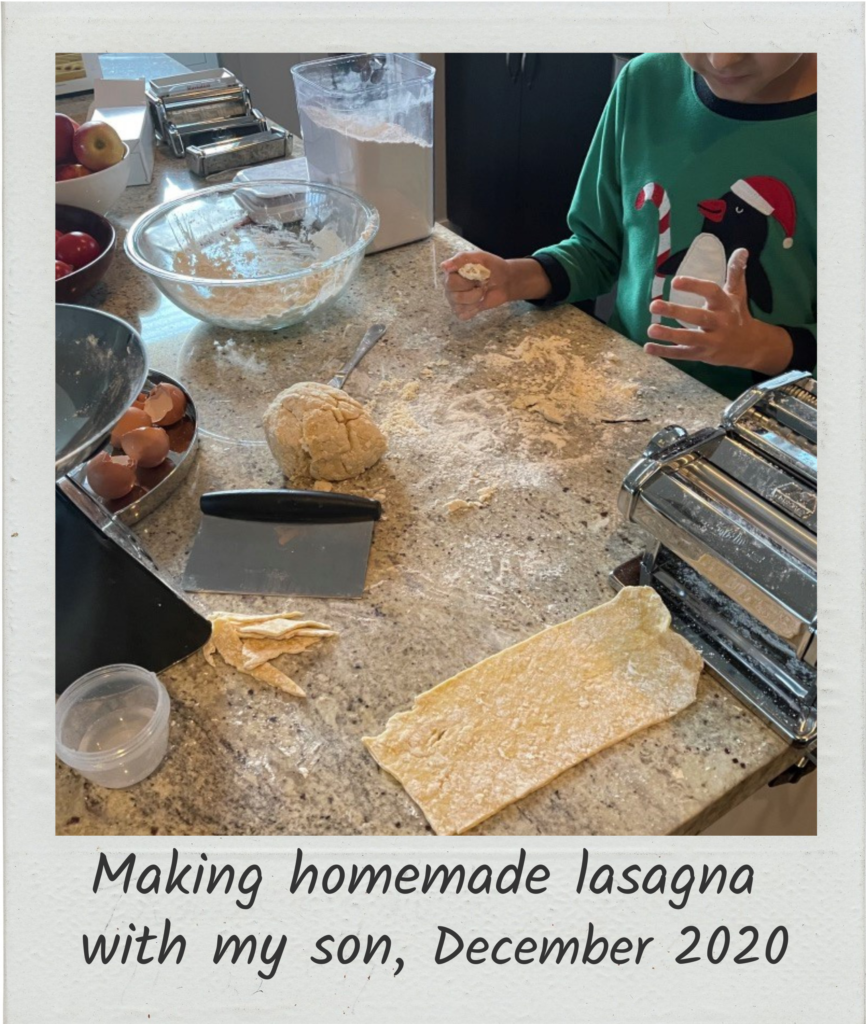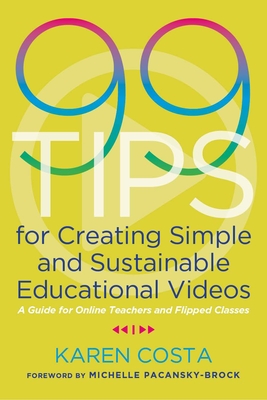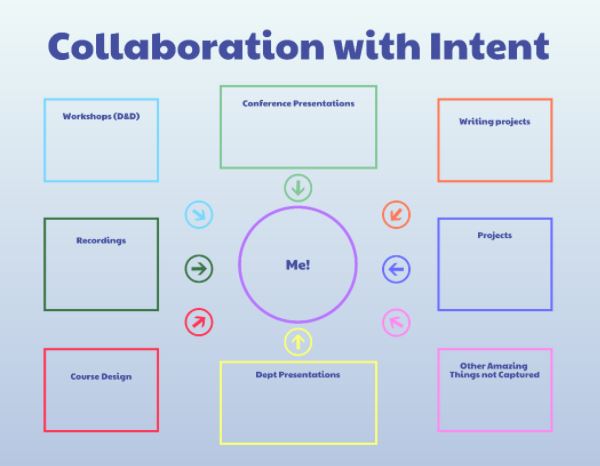Faculty Spotlight: Dr. Farhad Dastur
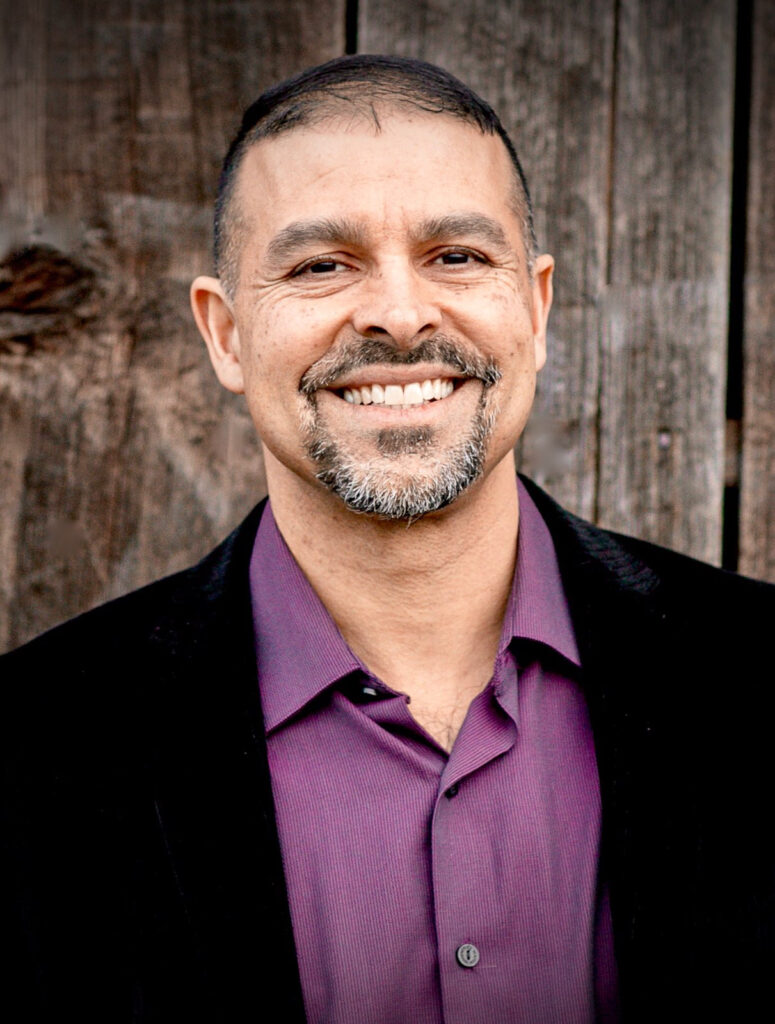
Recently, I had the pleasure of meeting with Dr. Farhad Dastur, a psychology
instructor at KPU. We had a fruitful and energizing conversation where we
discussed his love for nature, his extensive traveling (I have a feeling I haven’t
heard half of the destinations he has explored), his passion for teaching, his
new position in T&L Commons as an educational consultant, and much more.
Farhad has been in Canada since the early ‘70s, but his story begins in Uganda. “I was born in Kampala and my first language was Swahili. Had political upheaval not upturned our lives, I would very likely have pursued a business degree and I’d be running the family business today.” However, postcolonial Africa was a place of massive change. In August 1972, Uganda’s mercurial dictator, General Idi Amin Dada, ordered the expulsion of the country’s entire South Asian population. Farhad’s Persian and South Asian ancestry meant that he and his family had to leave the country and all their possessions. Three months later, they landed at Vancouver International Airport where they were greeted by Navnit Shah, a family friend who had left the country earlier. In 2000, by strange coincidence, Navnit would become Chair of Kwantlen University College’s Board of Governors; and 18 years after that, Farhad would be elected to KPU’s Board of Governors.
It was on the west coast that Farhad developed a deep love for the natural world. “Much of my youth was spent happily exploring tidal pools, camping on the Oregon coast, and hiking the Coastal Mountains.” As a teenager he joined Greenpeace, did fundraising for the Western Canada Wilderness Committee, and took part in protests to save the old growth forests in the Carmanah and Stein Valleys.
Farhad completed his high school and undergraduate education in Vancouver. These years were shaped by a few mentors, notably his International Baccalaureate English teacher Rod McKellar, “Mr. McKellar was more than a teacher: he was my mentor, my guide, and my friend.
At UBC, Farhad enrolled in physics—he wanted to be an astronaut—but changed to psychology after taking a course with the biopsychologist, Dr. John Pinel. As a research assistant in the Pinel lab, he discovered an abiding interest in the brain and behavioural sciences. This interest took him to Halifax where he completed graduate degrees in psychology from Dalhousie University. Halifax is also where he met Harleen who, years later, would become his partner in life.
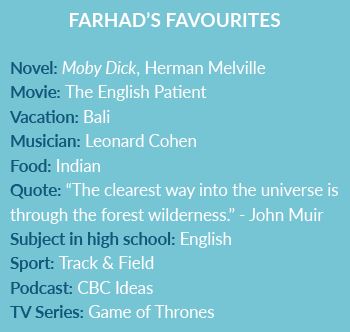
Returning to his beloved west coast in 2000, Farhad stepped onto the grounds at KPU (then KUC) eager to begin teaching. A twenty-one year career at KPU has allowed him to hold many portfolios, including Chair of Psychology, Chair of the Research Ethics Board, Associate Dean of Social Sciences, Associate Dean of Arts, Dean of Arts (pro temp), Senator, Board of Governors representative, Teaching Fellow in experiential learning, Principal Investigator of KPU’s Virtual
Reality Lab, and most recently, Educational Consultant in the Scholarship of Teaching & Learning. In 2006, he co-founded KPU’s National Undergraduate Research Conference in Psychology which now runs bi-annually under the guidance of his colleague Dr. Cory Pedersen.
In March, 2020, the world was hit with the COVID-19 pandemic. The campus shut down and over a 48-hour period, KPU’s in-person learning transformed into online learning. Through this transition, Farhad has tried to add value to distanced learning by embracing four guiding principles (see Delivering Value at a Distance: Teaching and Learning Strategies, Challenges, and Solutions):
- Embody radical honesty: Share with students that you too are learning this “new normal.” Tap into student knowledge and expertise to create a virtuous cycle of learners helping each other.
- Emphasize simplicity: The disruptions caused by the pandemic permit a renewed focus on the essentials of learning. “Simple” doesn’t mean easy; it means stripping away unnecessary barriers
and boxed-in thinking so that what we teach has persistent value for the learner. - Experiment with experiential education: Experiential learning was important before the massive move to online teaching; it’s even more important now. Farhad suggests, “Doubling down on activities that permit learning by doing, reflecting critically on learning, and modifying one’s knowledge based on those critical reflections, and insights.” Following David Wiley’s plea, he suggests replacing “disposable assignments” with “renewable” ones that add value to the world. For example, students in his cognitive ergonomics class conduct free website usability analyses for non-profit organizations.
- Expand teachable moments: The pandemic provides an ever-flowing fountain of teachable moments and material including the politics of public health measures, the psychology of conspiracy theories, the visualization of large data sets, the privacy of personal health information, the ethics of consent, the microbiology of viruses, the history and sociology of pandemics, the physics of aerosols, the economics of shutdowns, and so much more.
Farhad has been an advocate and practitioner of open education ever since his colleague, Dr. Rajiv Jhangiani (now KPU’s AVP, Teaching & Learning), introduced him to the movement in Farhad’s book chapter, “How to open an academic department” provided “a set of three practical recommendations for those interested in fostering change, including (1) encouraging a departmental culture of openness, (2) focusing on the quality of OER, and (3) encouraging departmental control over OER” (read his chapter in Jhangiani & Biswas-Diener’s book, Open: The philosophy and practices that are revolutionizing education and science.)
Farhad’s twin passions for nature and education converged when he co-led KPU’s Interdisciplinary Amazon Field School in Colombia. Students experience the cultural richness of Bogotá and then encounter the wildness of the Amazon jungle and river in the Calanoa Nature Reserve. Teachings from Colombia’s Indigenous Peoples are woven into the fabric of the three-week experience. “The Amazon Field School, and field schools in general, is everything we want education to be. It integrates experiential education, universal design for learning, Indigenous knowledge, authentic cultural experiences, and nature-based learning. Students take measured risks, confront fears, and grow immeasurably.”
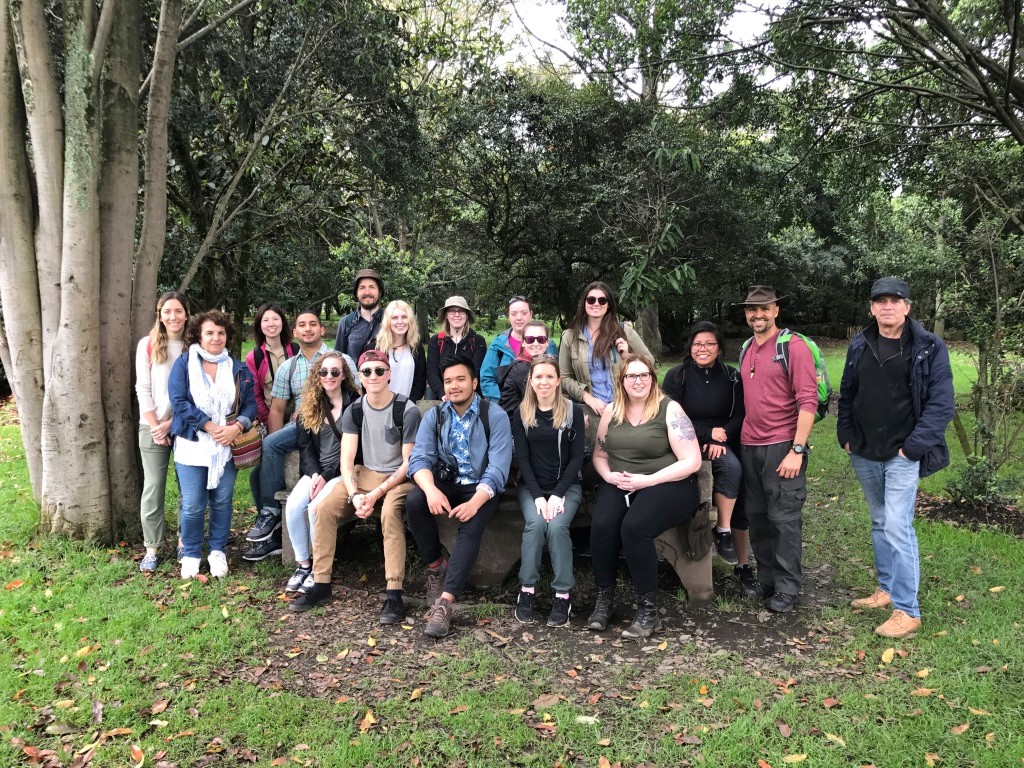
Influenced by visionary colleagues like Lee Beavington, Lucie Gagne, Kathy Dunster, and Ross Laird, Farhad looks for ways to use natural places as spaces for powerful teaching and learning. In 2021, he founded the Natural Spaces Advisory Committee which he co-chairs with Iain Hunter (Facilities). With a mandate from KPU’s Senate,
this committee is tasked with protecting, promoting, and developing KPU’s natural spaces as places of deep learning and innovative teaching.
asked Farhad how he coped with the isolation, disruptions, and uncertainties of the
pandemic. “I simplified my life. I started swimming in the ocean and I stopped listening to CNN. I took up woodworking to make gifts for family and friends.” He also reflected on his 2006 trek on Tanzania’s Mount Kilimanjaro (see his TEDx talk, “Love & Death on Kilimanjaro”). Climbing Kilimanjaro was very much about entering into a space of quietude and mindful contemplation. “With no phones, emails, or other distractions, there is a moment on the mountain when you become aware of the simple act of breathing. Each day heightens the primal rhythms of life: waking up with the sun, sleeping when it’s dark, eating slowly, and walking hours and hours every day.” The Tanzanian guides would urge the climbers to climb, “Pole, pole,” Swahili for “Slowly, slowly.” Perhaps “pole, pole” is something many of us can welcome into our lives as well.
Beginning this September, the Teaching and Learning Commons is excited to add Farhad to our team as an Educational Consultant in the Scholarship of Teaching and Learning (SoTL). Regarding the position, Farhad says, “SoTL is about investigating the theory and practice of teaching in a scholarly way and then documenting and sharing those insights.” He welcomes consultations from faculty interested in SoTL projects—asking only that good coffee be part of the conversation.
Photos provided by Farhad Dastur.
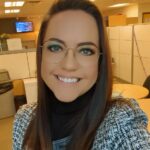
Andrea Votto
A KPU graduate with a BA in Anthropology, Andrea feels right at home working at KPU as the Teaching & Learning Commons Communications & Events Specialist. She assists in the daily marketing, communications, promotion, and event planning strategies for the Teaching & Learning department.
